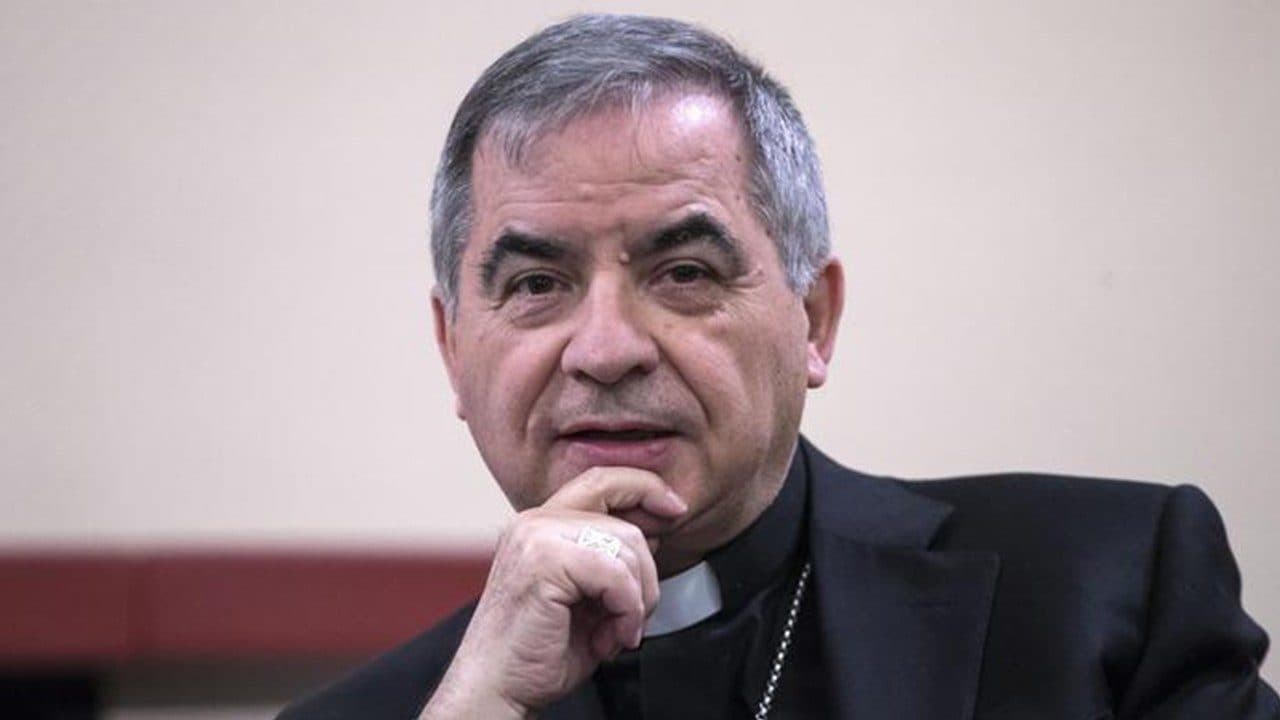ROME – Almost two years after the original verdict — 644 days, to be precise — an appeals trial opened on Monday to consider the convictions of Italian Cardinal Angelo Becciu and six of the original nine other defendants in the Vatican’s “Trial of the Century.”
The trial, which ended in convictions of virtually everyone involved, turned on a failed $400 million real estate deal in London, in which the Vatican’s Secretariat of State purchased a former Harrod’s warehouse in the Chelsea neighborhood with the idea of turning it into luxury apartments.
Through a series of dubious transactions, the Vatican eventually sold the property at a loss to extricate itself from the affair, reportedly losing at least $163 million in the process.
At the time the transaction began, Becciu was serving as the sostituto, or substitute, in the Secretariat of State, making him effectively the pope’s chief of staff. Vatican prosecutors charged that Becciu, other officials and advisors, and a pair of Italian financiers had knowingly swindled the Vatican out of the money; the defendants argued instead that it was the Vatican itself, represented by senior officials such as Cardinal Secretary of State Pietro Paroli and Archbishop Edgar Peña Parra, Becciu’s successor as sostituto, who made a series of poor business decisions which resulted in the losses.
Becciu has consistently maintained his innocence, and he continues to do so now. For purposes of the appeal, the charges against him have been phrased as “embezzlement” and “fraud,” even though in the first trial the judges conceded there was no evidence Becciu ever profited personally from the disputed transactions.
The three-judge panel which will hear the appeal is led by Spanish Archbishop Alejandro Arellano Cedillo, who is the dean of the Roman Rota, the Vatican’s main working canonical court. The 63-year-old Arellano Cedillo is a member of the Workers of the Kingdom of Christ, a religious community founded in Mexico in 1963 and dedicated to cultivating vocations to the priesthood.
Arellano Cedillo will be joined by two lay judges. During this first week, the court will hold hearings every; what its pace may be after that, and how long the appeal will eventually take, are not yet clear.
In addition to the London fiasco, Becciu was also charged in the original trial on two other grounds, one involving transfers of funds from the Secretariat of State to a charity in his native Sardinia run by his brother, and the other involving payments to self-described security consultant Cecilia Marogna, supposedly for the liberation of a Colombian nun kidnapped by jihadists in Mali, though at least some of those funds ended up buying luxury goods for Marogna.
Six other defendants in the original trial have filed appeals. Both the Secretariat of State and the Administration of the Patrimony of the Apostolic See, which were civil parties to the first trial, have opted to sit this one out.
The prosecution will once again be represented by Alessandro Diddi, a veteran Roman attorney and former mob lawyer who, since September 2022, has served as the Vatican’s Promoter of Justice.
Defense attorneys are expected to rehearse many of the arguments made at the original trial, including raising questions about the testimony of Monsignor Alberto Perlasca, a former official in the Secretariat of State who helped engineer the London deal but then volunteered to assist the prosecution.
It emerged during trial that two Italian lay women, including Francesca Immacolata Chaouqui, infamous for her role in the Vatileaks 2.0 affair, had coached Perlasca, and since the trial compromising Whatsapp messages between the women have been published in the Italian media.
Prosecutors, however, will point out that the court in its verdict in the first trial said that it had discounted Perlasca’s testimony and based its conclusions on other grounds.
Defense lawyers will also revisit the issue of due process and the separation of powers in the Vatican’s system of civil justice, including the matter of four “rescripts,” or special decrees, issued by Pope Francis in the London case granting prosecutors extraordinary powers to conduct surveillance and sequester evidence without judicial review.
The court in the first trial, led by presiding judge Giuseppe Pignatone, a veteran lay Italian jurist, ruled that the rescripts did not compromise the defendants’ right to a fair trial, but that conclusion will be challenged during the appeals process.
(Ironically, Pignatone is currently under investigation in Sicily for alleged mob ties early in his career, including charges that family members acquired houses for below-market prices from figures linked to the Cosa Nostra. Pignatone has denied any wrongdoing.)
More broadly, defense lawyers may question whether any civil prosecution in the Vatican can ever meet contemporary standards of due process when the pope is both the supreme executive and judicial authority.
Pope Leo XIV commented on the London case during his recent interviews with Elise Ann Allen of Crux, which came as part of her biography of the pontiff, León XIV: ciudadano del mundo, misionero del siglo XXI, or “Leo XIV: Citizen of the World, Missionary of the XXI Century,” published by Penguin Peru.
“There was great publicity given to the purchase of this building in London, Sloane Avenue,” the pope said, “and how many millions were lost because of that.”












